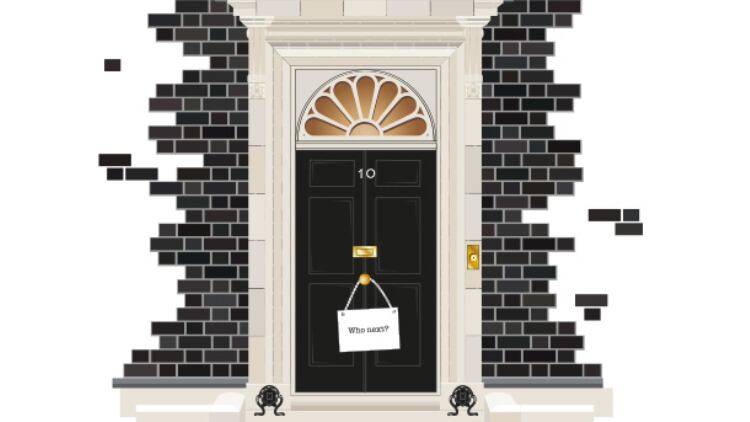Under the plans, Boris Johnson has also promised to protect local services and reconnect villages to the rail network.
UKHospitality, the Wine & Spirit Trade Association and the British Beer & Pub Association have all welcomed the pledge to support UK’s pubs, but have warned that support will need to go further.
A great first step
Lib Dems
A Liberal Democrat spokesperson for communities and local government said:
“Pubs are the bedrock of communities across the country but, in recent years, far too many people have seen their local shut its doors.
“The Conservatives’ business rates hike hit pubs hard, especially when they failed to renew the discount for pubs last year.
“Liberal Democrats will support pubs and build a brighter future for our communities. We will scrap business rates altogether and replace them with a fairer system that lowers bills for the vast majority of small businesses.
“And we will introduce minimum unit pricing to improve public health and encourage responsible drinking. With a Liberal Democrat government, pubs will thrive and our communities will thrive with them.”
UKHospitality chief executive Kate Nicholls said: “UKHospitality has been repeatedly calling for a cut in business rates for hospitality. The sector has been hammered by extortionate rates and high streets have declined as a result.
“The hospitality sector pays over £3bn in business rates, 11% of the total UK rates bill. This is despite being responsible for 2.5% of eligible economic activity. If hospitality’s rates bill was fair it would be slashed by £2.4bn.
“A cut for pubs is certainly very welcome and a great first step. Any future Government does need to realise that the problem is wider and affects the entire hospitality sector. This cut needs to go further and incorporate all hospitality businesses, and it needs to pave the way for wider reform of the whole system.”
Crippling financial pressures
Wine & Spirit Trade Association chief executive Miles Beale said it welcomes any commitment by politicians to help bolster the British pub but, again, urges the next Government to take a wider look at the hospitality sector.
Beale said: “Together with UKHospitality, we are calling for a cut to all hospitality business rates – which would not only help pubs but would also have a positive impact on the struggling high street where bars and restaurants are closing at an alarming rate due to crippling financial pressures.
“High duty rates are bad for UK consumers, bad for UK businesses – especially SMEs – and bad for the Exchequer. Cutting duty is proven to increase revenue to the Exchequer.”
Boris Johnson
Most of Johnson’s recent engagement with the on-trade occurred while London mayor between May 2008 and May 2016.
Shortly after being appointed foreign secretary in 2016, former Mayor of London and Brexit frontman Johnson was voted the politician most trusted to run a pub, with almost a fifth (22%) of those surveyed by YouGov on behalf of the Campaign for Real Ale (CAMRA) claiming they would trust him with their business.
And in a strategic plan, published in March 2015, Johnson pledged to help London’s 33 local authorities to protect valued pubs from being lost – the first time the role of the capital’s pubs was recognised in the London Plan.
While his mayoral successor Sadiq Khan introduced the 24-hour underground service, Khan recognised that Johnson deserved credit for putting the Night Tube on track.
Green Party
Caroline Lucas said: "Pubs play such an important role in our communities but are often struggling with high business rates and a beer duty which deters customers.
"As a leading member of Parliament’s cross party group in support of local pubs, I’ve repeatedly lobbied ministers to cut this duty and ahead of every budget, I have urged respective Chancellors to reduce the tax burden faced by pubs and protect their future though disappointingly, this falls on deaf ears.
"I also co-sponsored an amendment to the Planning Bill to better protect pubs under planning law. We are still losing about 18 pubs every week, which can tear the heart out of a community. This steady decline has to be stopped so that our pubs survive and thrive.”
Easing the burden
British Beer & Pub Association chief executive Emma McClarkin said: “Pubs are the heart of our communities, so this commitment to ease the burden of business rates is welcome. Three pubs a day close their doors for good due to the tax pressures they face.
“On business rates alone, pubs pay 2.8% of the business rates bill, despite accounting for just 0.5% of turnover. Reducing rates for pubs is an important step in the right direction. Such reliefs are vital until the fundamentally unfair system is overhauled.
“Investment is the lifeblood of community pubs, so it is important that measures to bolster the rights of individual communities to purchase pubs do not act as a disincentive to investment. Given that seven in 10 alcoholic drinks sold in a pub are beer, the most direct way of keeping pubs viable is to cut beer duty.”
See it go further
SIBA chief executive James Calder said: “It is great that the Conservative Party recognises the vital contribution pubs make in our communities.
“Taking business rate relief from 33% to 50% will be a huge boost for pubs and the brewing sector. Pubs owned by their communities is a model that is proven, so keeping more pubs in the hands of local people is also to be welcomed.
“We’d like to see the Conservative Party go further and commit to helping small brewers on their business rates bills.
“Within the valuations system, large and global brewers premises are classed as ‘specialist’ where as small brewers’ premises are classed as ‘general manufacturing’.
“This means that, per pint of beer, the business rates paid by small independent brewers is significantly greater than that of their global competitors, who have economies of scale that independents do not.”
Welcoming support for business
Labour
Labour MP Toby Perkins’ blog in 2014 read: “My aim in this has been to strengthen protections for small local businesses and workers.
“In particular, I was pleased that we stopped the Government imposing extra burdens on small family brewers when they should be focusing on the biggest pub owning companies, and also stopped a clause that would have watered down Britain’s world-class insolvency regime, which has saved many hundreds of businesses and thousands of jobs.”
Ahead of the Prime Minister’s speech to business leaders today (18 November), it has been announced that another Conservative government would undertake a fundamental review of business rates and introduce reductions in National Insurance Contributions (NICs).
UKHospitality has long been calling for business rates reform and for cutting NICs to help raise wages and, therefore, welcomes the Conservative pledge to overhaul business rates and cut employer NICs.
Nicholls said: “We very much welcome the pro-business sentiment and particularly the focus on employment and property taxes – the two biggest hurdles holding back hospitality growth and investment. We are particularly pleased to see reform of business rates being made a priority.
“For too long, the debate about business taxes in this country has focused solely on corporation tax levels but that only makes a material difference to companies who are making a profit. Hospitality has seen a third wiped off its profits due to increases in rates and employment taxes so this is a long overdue and very welcome redressing of the balance to free up businesses to invest.
“It is also refreshing to hear proposals on employers’ NICs, with today’s announcement being a step in the right direction. If the Conservatives, or any future government, wants to really support businesses, without reducing take-home pay, then they should consider extending this employer NICs cut to include the first £12,000 of earnings.”




